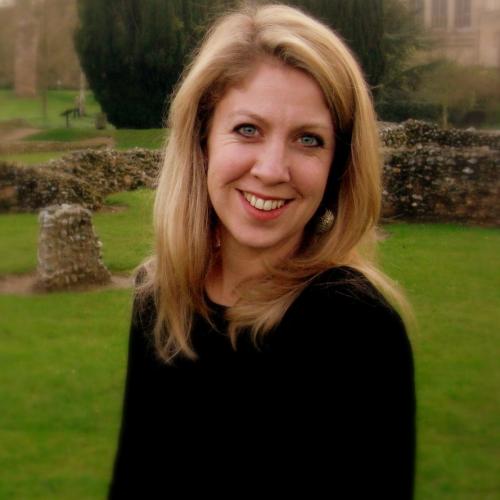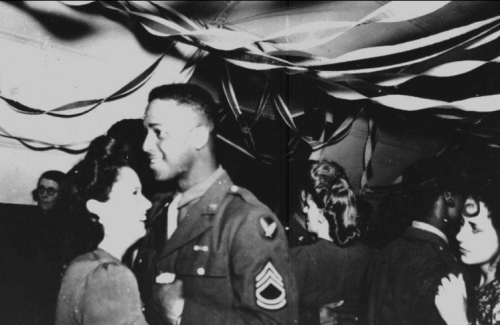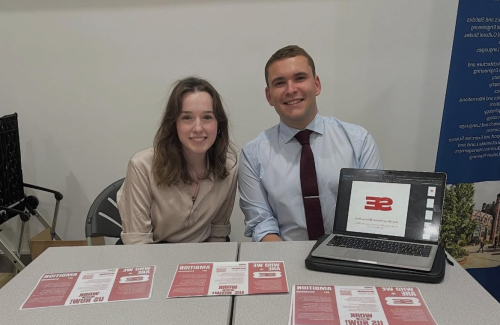
Dr Gemma Allen
Teaching activities
I first joined Pembroke in 2010. Before that, I read History and English as an undergraduate at St Catherine’s College, Oxford. After working as a researcher for historical TV documentaries (including the RTS award nominated Blitz Spirit), I returned to Oxford for postgraduate study, receiving my doctorate in 2010 from Jesus College. Whilst completing my doctorate, I held a one-year lectureship at Lincoln College, Oxford, and from 2010 I was a stipendiary lecturer at Pembroke College, Oxford. I joined the Open University as a lecturer (now senior lecturer) in early modern history in 2012, when I also became a retained lecturer at Pembroke. I am a Fellow of the Royal Historical Society and a BBC Expert Woman.
My research is concentrated especially on sixteenth and seventeenth-century women, with a particular focus on letter-writing and the history of women and politics. My book, The Cooke Sisters: Education, Piety and Politics in Early Modern England (2013), explores the lives of five remarkable sixteenth-century women: Mildred Cooke Cecil (1526-1589), Anne Cooke Bacon (1528-1610), Margaret Cooke Rowlett (c.1533-1558), Elizabeth Cooke Hoby Russell (c. 1540-1609) and Katherine Cooke Killigrew (c. 1542-1583). Part of the select group of Tudor women allowed access to a formal education, the Cooke sisters were also well-connected through their marriages to influential Elizabethan politicians. Drawing particularly on their own writings, this book reconstructs for the first time the sisters' humanist education and reveals the extent of their religious and political agency. The book was runner-up for the 2014 WHN Book Prize.
The extensive extant correspondence of one of the Cooke sisters, Lady Anne Bacon, is the subject of my edition for the Camden series. My current research project looks more widely at the political activities of early modern Englishwomen. This includes my recently published article on English ambassadresses in early modern diplomatic culture.
Monographs
The Cooke Sisters: Education, Piety and Politics in Early Modern England (Manchester University Press, hardback 2013, paperback 2016).
Editions
The Letters of Lady Anne Bacon (Camden Society Publications/CUP, 2014).
Journal Articles
'The Rise of the Ambassadress: English Ambassadorial Wives and Early Modern Diplomatic Culture', The Historical Journal, 62:3 (2019), pp. 617-638.
Peer-reviewed chapters
‘Women as Counsellors in Sixteenth-Century England: The Letters of Lady Anne Bacon and Lady Elizabeth Russell’ in J. Daybell and A. Gordon (eds), Women and Epistolary Agency in Early Modern Culture, 1450-1690 (Routledge, 2016), pp. 81-95.
‘“a briefe and plaine declaration”: Lady Anne Bacon’s 1564 Translation of the Apologia Ecclesiae Anglicanae’, in P. Hardman and A. Lawrence-Mathers (eds), Women and Writing, c.1340-c.1650: The Domestication of Print Culture (Boydell and Brewer, 2010), pp. 62-76.
https://gemmaallen.com/
News from History
Dr Gemma Allen

Teaching activities
I first joined Pembroke in 2010. Before that, I read History and English as an undergraduate at St Catherine’s College, Oxford. After working as a researcher for historical TV documentaries (including the RTS award nominated Blitz Spirit), I returned to Oxford for postgraduate study, receiving my doctorate in 2010 from Jesus College. Whilst completing my doctorate, I held a one-year lectureship at Lincoln College, Oxford, and from 2010 I was a stipendiary lecturer at Pembroke College, Oxford. I joined the Open University as a lecturer (now senior lecturer) in early modern history in 2012, when I also became a retained lecturer at Pembroke. I am a Fellow of the Royal Historical Society and a BBC Expert Woman.
My research is concentrated especially on sixteenth and seventeenth-century women, with a particular focus on letter-writing and the history of women and politics. My book, The Cooke Sisters: Education, Piety and Politics in Early Modern England (2013), explores the lives of five remarkable sixteenth-century women: Mildred Cooke Cecil (1526-1589), Anne Cooke Bacon (1528-1610), Margaret Cooke Rowlett (c.1533-1558), Elizabeth Cooke Hoby Russell (c. 1540-1609) and Katherine Cooke Killigrew (c. 1542-1583). Part of the select group of Tudor women allowed access to a formal education, the Cooke sisters were also well-connected through their marriages to influential Elizabethan politicians. Drawing particularly on their own writings, this book reconstructs for the first time the sisters' humanist education and reveals the extent of their religious and political agency. The book was runner-up for the 2014 WHN Book Prize.
The extensive extant correspondence of one of the Cooke sisters, Lady Anne Bacon, is the subject of my edition for the Camden series. My current research project looks more widely at the political activities of early modern Englishwomen. This includes my recently published article on English ambassadresses in early modern diplomatic culture.
Monographs
The Cooke Sisters: Education, Piety and Politics in Early Modern England (Manchester University Press, hardback 2013, paperback 2016).
Editions
The Letters of Lady Anne Bacon (Camden Society Publications/CUP, 2014).
Journal Articles
'The Rise of the Ambassadress: English Ambassadorial Wives and Early Modern Diplomatic Culture', The Historical Journal, 62:3 (2019), pp. 617-638.
Peer-reviewed chapters
‘Women as Counsellors in Sixteenth-Century England: The Letters of Lady Anne Bacon and Lady Elizabeth Russell’ in J. Daybell and A. Gordon (eds), Women and Epistolary Agency in Early Modern Culture, 1450-1690 (Routledge, 2016), pp. 81-95.
‘“a briefe and plaine declaration”: Lady Anne Bacon’s 1564 Translation of the Apologia Ecclesiae Anglicanae’, in P. Hardman and A. Lawrence-Mathers (eds), Women and Writing, c.1340-c.1650: The Domestication of Print Culture (Boydell and Brewer, 2010), pp. 62-76.
https://gemmaallen.com/

